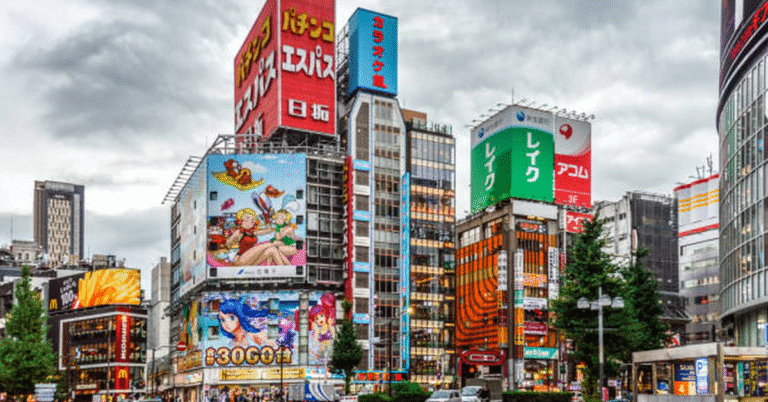
Manga has become one of the most beloved forms of storytelling in the modern world. With its roots in Japanese culture, manga has gained global recognition for its unique visual style, emotional depth, and imaginative worlds. Fans outside Japan, however, often face challenges in accessing physical manga due to limited availability, higher costs, or delayed translations. This demand created a surge in digital platforms that provide quick and free access to thousands of manga titles.
Among these, Mangago stands out as a popular online manga reading platform. It has attracted millions of users across the globe, offering an extensive library of manga genres ranging from romance and fantasy to horror and slice-of-life. But despite its wide usage, Mangago also sparks debates around legality, safety, and ethical concerns.
In this article, we will explore Mangago in detail. You’ll learn about its background, features, advantages, drawbacks, safety issues, alternatives, and the cultural significance of manga consumption online. We will also present tables for easy comparisons, ensuring that the discussion is structured, informative, and easy to navigate.
What is Mangago?
Manga-go is an online platform where users can read manga for free. It provides a massive library, often including both completed and ongoing manga series. While it is not an official publisher, it sources scans, translations, and fan-made versions of manga, which makes it attractive to readers who may not otherwise have access to certain titles.
The website gained popularity mainly because it updates quickly, offers a wide range of genres, and requires no subscription fees. Readers from countries where official manga releases are delayed often rely on such sites to stay up-to-date with the latest chapters.
Key Features of Mangago
Mangago offers a range of features that have made it one of the most visited manga reading websites.
| Feature | Details |
|---|---|
| Extensive Manga Library | Offers thousands of manga titles from classic series to the latest releases. |
| Genre Diversity | Covers romance, fantasy, action, yaoi, yuri, horror, comedy, and more. |
| User-Friendly Interface | Simple navigation, categorized sections, and search filters. |
| Free Access | No subscription fee; most manga can be read without account registration. |
| Community Interaction | Comment sections allow readers to discuss chapters. |
| Bookmarking | Users can save their place and continue reading later. |
| Regular Updates | Newly released chapters often appear quickly. |
Why is Mangago Popular?
Several factors explain Mangago’s widespread popularity among readers:
- Accessibility: Readers in countries without official manga distribution can access stories freely.
- Variety: From popular shōnen titles like Naruto to niche genres like Boys’ Love (BL), Mangago covers everything.
- Speed: Chapters are uploaded shortly after their release in Japan, keeping readers engaged.
- Cost-Free Model: Unlike official apps, which may require purchases or subscriptions, Mangago offers everything free.
- Community Culture: Many readers enjoy not only the content but also the shared community discussions around each series.
Legal and Ethical Concerns
While Mangago is loved by fans, it also raises concerns:
- Copyright Issues: Since Mangago hosts manga without official licenses, it falls into a gray area of piracy. Publishers and creators lose revenue, which affects the industry.
- Ethical Dilemma: Supporting unauthorized platforms may discourage future translations and reduce sales of official releases.
- Legal Risks: While casual readers rarely face penalties, websites can be shut down, causing disruptions in access.
| Concern | Impact |
|---|---|
| Copyright Infringement | Loss of revenue for publishers and creators. |
| Industry Sustainability | Reduced incentive for legal translations and official releases. |
| Reader Safety | Risk of malware, intrusive ads, and scams. |
| Unstable Access | Websites may shut down or become inaccessible at any time. |
Safety Issues When Using Mangago
Another important aspect of Mangago is user safety. Since it is not an official licensed site, it can expose users to certain risks:
- Advertisements and Pop-Ups: Some ads may lead to harmful or suspicious links.
- Data Privacy: Users who register accounts may risk their information being exposed.
- Malware Risks: Download links from unverified sources can contain viruses.
- Unstable Servers: Since the site is unofficial, downtime is common.
Tips for Safer Usage:
- Avoid downloading files directly from ads.
- Use ad-blockers when browsing.
- Refrain from sharing personal information.
- Consider reading on legal platforms when available.
Legal Alternatives to Mangago
For readers who want to support manga creators and enjoy safe, stable experiences, there are several legal alternatives:
| Platform | Type | Strengths | Limitations |
|---|---|---|---|
| Crunchyroll Manga | Subscription-based | Licensed titles, simultaneous release with Japan. | Limited library compared to scans. |
| Manga Plus | Free + Official | Free access, direct from Shueisha, supports creators. | Some titles limited to specific regions. |
| Comixology | Paid | Wide range of comics, manga, and graphic novels. | Requires purchase or subscription. |
| Viz Media | Subscription-based | Affordable membership, extensive catalog. | Region-locked in some areas. |
| BookWalker | Paid | Official digital bookstore for manga and light novels. | No free content beyond samples. |
The Cultural Impact of Mangago
Mangago is not just about reading manga—it reflects a cultural shift in how fans consume media.
- Globalization of Manga: By making manga accessible worldwide, Mangago has contributed to the global spread of Japanese culture.
- Community Creation: Readers interact, share thoughts, and even bond over manga discussions in comment sections.
- Fan Translation Movement: Many titles are translated by fans, often faster than official teams, giving non-Japanese speakers quicker access.
- Changing Reading Habits: Digital platforms like Mangago have shifted readers from buying physical books to consuming digital versions.
Pros and Cons of Mangago
| Pros | Cons |
|---|---|
| Free access to thousands of manga titles. | Copyright and piracy concerns. |
| Fast updates with the latest chapters. | Potential legal risks and site shutdowns. |
| Wide range of genres and categories. | Exposure to unsafe ads and malware risks. |
| Community interactions and discussions. | Quality of scans and translations may vary. |
| No subscription or hidden costs. | Does not financially support creators. |
Responsible Manga Consumption
While Mangago provides easy access, readers must also think about the long-term impact on the industry. Here are ways to balance convenience with responsibility:
- Support Official Releases: If a manga you love becomes available in your region, purchase it or subscribe to official apps.
- Use Free Legal Platforms: Many publishers now provide free reading apps, ensuring creators still earn revenue.
- Educate New Readers: Inform newcomers about the difference between fan-made scans and official releases.
- Balance Reading Habits: Enjoy Mangago for discovering new series but support the official works when possible.
Future of Online Manga Reading
The rise of platforms like Mangago shows that readers crave accessibility, affordability, and variety. Publishers are learning from this demand and expanding digital offerings to compete. Future trends may include:
- More Global Simultaneous Releases: To minimize piracy, publishers may release chapters worldwide at the same time.
- Affordable Subscription Models: Offering “all-you-can-read” plans at reasonable prices.
- Improved Translation Speed: Hiring larger teams to reduce delays.
- Community Features on Official Platforms: Learning from Mangago’s interactive model to engage readers better.
Conclusion
Mangago represents both the strengths and flaws of digital manga consumption. On one hand, it breaks barriers, making manga accessible to millions worldwide regardless of geography or cost. On the other hand, it raises significant concerns about legality, creator compensation, and user safety.
For manga lovers, Mangago can serve as an entry point into the vast universe of Japanese storytelling. But ultimately, supporting official platforms ensures that the art form continues to thrive, allowing creators to be rewarded for their talent and hard work.
In the future, the challenge for the industry will be to provide a balance between accessibility and legality, ensuring that readers enjoy a safe and ethical experience while creators continue to flourish.
FAQs
1. Is Mangago legal?
No, Mangago is not a licensed platform. It shares manga without official publishing rights, which raises copyright concerns.
2. Do I need to pay to use Mangago?
No, Mangago is free to use. However, this free access is tied to its unofficial nature, unlike licensed paid services.
3. Can using Mangago harm my device?
It can, as some ads or downloads may contain harmful links. Using ad-blockers and avoiding downloads is recommended.
4. What genres are most popular on Mangago?
Genres like romance, BL, fantasy, shōnen, and slice-of-life are highly popular, but the platform covers almost every niche.
5. What are the best legal alternatives to Mangago?
Popular options include Manga Plus, Viz Media, Crunchyroll Manga, Comixology, and BookWalker. These are safe and support creators.





